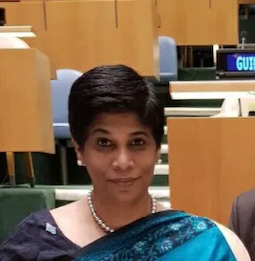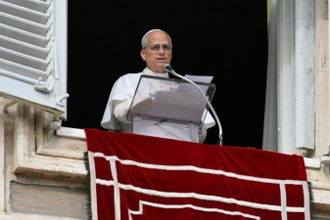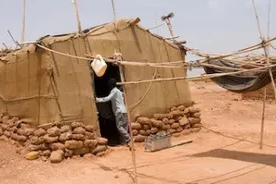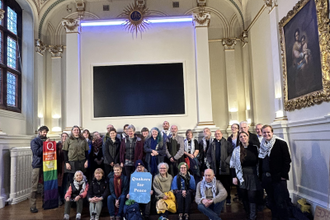Sudan: ICC warns 'suffering is beyond words' in Darfur

Nazhat Shameem Khan, Deputy Prosecutor at ICC. Wiki Image
Source: Vatican Media, ICC
The Darfur region of Sudan has been torn apart by a civil war which is now in its third year.
Nazhat Shameem Khan, Deputy Prosecutor at the International Criminal Court (ICC), addressed the United Nations Security Council on Thursday, warning that the suffering of the people of Darfur has reached "an intolerable state" and urging the world not to turn a blind eye to what she says are likely war crimes and crimes against humanity in the region.
Khan testified to the horror that continues to unfold in Darfur, where more than 40,000 people have been killed and 13 million forced to flee their homes since the outbreak of violence in 2023.
"Famine is escalating. Hospitals and humanitarian convoys are being targeted. People are being deprived of water and food," said Khan, adding that "it is difficult to find appropriate words to describe the depth of suffering in Darfur."
In the western region of Sudan, the human toll is only worsening. The conflict between the Sudanese Armed Forces (SAF) and the paramilitary Rapid Support Forces (RSF)-a descendant of the Janjaweed militia-has engulfed entire communities. Homes, hospitals, and schools are now completely in ruins.
Of the millions who have been forced to flee, thousands have sought refuge in neighbouring Chad. There, investigators from the ICC interviewed survivors in an attempt to piece together a picture of the reality they have been forced to face. They discovered widespread abuses: rape used as a weapon of war, abductions for ransom, and the deliberate starvation of innocent civilians.
Khan stressed that the evidence the ICC has gathered points to ongoing atrocities. "We have reasonable grounds to believe that war crimes and crimes against humanity have been and are continuing to be committed in Darfur."
The international community has long been called to respond to the violence in Darfur. In 2005, the UN Security Council referred the situation to the ICC after the first wave of atrocities claimed some 300,000 lives. Now, two decades later, the reality for the new generation is even worse than it was before.
The ICC is expected to soon deliver its first verdict on crimes committed in Darfur-against Ali Mohamed Ali Abd-Al-Rahman, known as Ali Kosheib, whose trial concluded last year. Kosheib is believed to have been the principal leader of the Janjaweed militias in the Wadi Saleh area of West Darfur. But Khan warned that justice cannot end there.
"To those who are inflicting unimaginable atrocities on Darfur's population today, I say this: you may feel a sense of impunity now-as Ali Kosheib may once have felt," she said. "But we are working intensively to ensure that his trial is only the first of many."
The international community, including the United Nations, has expressed increasing alarm. In June, a UN fact-finding mission reported that both the SAF and RSF are using heavy weapons in populated areas and manipulating humanitarian aid as a tool of war.
Earlier this year, ICC Chief Prosecutor Karim Khan stated that there are credible grounds to suspect both parties may be committing war crimes, crimes against humanity, or even genocide.
Amid the grim reality, the people of Darfur continue to flee, with over four million now displaced across the region and beyond. The Zamzam camp was once a place of refuge for people fleeing.
However, it was reportedly seized by the RSF in April, and photos from the area show long lines of men, women, and children on foot-seeking safety, more often than not without any success.
Throughout his pontificate, the late Pope Francis often addressed his prayers to the people of Sudan, urging warring parties to prioritize the lives of civilians and appealing to the international community to increase efforts to address the humanitarian catastrophe.
On 15 June Pope Leo XIV said: "I renew my appeal to the combatants to stop, to protect civilians, and to embark on a path of dialogue for peace," he said, before urging the international community to "intensify" its efforts to provide humanitarian aid to a population which is "severely affected" by the ongoing crisis.


















